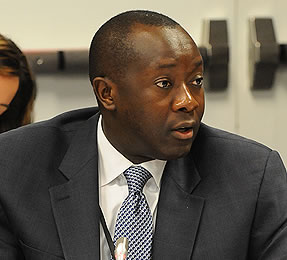The Liberian Senate is grappling with the potential fallout of the United States’ temporary suspension of foreign aid, a move initiated by the Trump administration under the “America First” policy. Four senators, representing Gbarpolu, Bomi, Grand Bassa, and Sinoe Counties, have voiced serious concerns about the potential collapse of crucial sectors like health, education, and agriculture, all heavily reliant on US aid. These senators warn that the suspension could create a significant shortfall in Liberia’s 2025 national budget, disrupting essential services and jeopardizing the country’s development trajectory.
The senators emphasized the magnitude of US support to Liberia, particularly referencing Amendments 14 and 15 to the Development Objective Agreement (DAOG), a pact between the two nations. This agreement represented a substantial investment of $114,488,125, constituting roughly 14% of Liberia’s national budget. This “off-budget” funding, channeled through USAID, played a critical role in bolstering development initiatives, focusing on critical areas such as health, education, and economic growth, aiming to build a healthy and educated workforce, the foundation for sustainable development.
The potential disruption caused by the aid suspension is starkly illustrated by the specific programs impacted. In the education sector, USAID funded school lunches in 52 schools across Bong and Montserrado Counties, providing daily meals to over 19,000 students. Furthermore, USAID actively championed girls’ education and collaborated with the Liberian government through the Transforming the Education System for Teachers and Students in Liberia (TESTS) program. This program focused on improving the quality of early childhood and primary education in six densely populated counties: Bong, Grand Bassa, Lofa, Margibi, Montserrado, and Nimba. The suspension threatens to derail these crucial initiatives, potentially leaving thousands of students without meals and hindering efforts to enhance educational quality.
In the health sector, USAID’s contributions were instrumental in strengthening health systems and ensuring access to essential antiretroviral medications, particularly for vulnerable populations, including women, girls, newborns, and children under five. The senators fear that the aid freeze will disrupt the supply of essential medications, leaving these vulnerable groups at increased risk. Similarly, in agriculture, USAID provided vital support to smallholder farmers in Nimba County and nurtured the growth of thirty agribusiness startups. The suspension threatens to undermine these efforts, potentially impacting food security and economic opportunities in the agricultural sector.
Recognizing the gravity of the situation, Senator Konneh, speaking on behalf of his colleagues, stressed the need for a comprehensive reassessment of Liberia’s budgeting and development financing strategies. He warned of imminent disruptions in hospital supplies, interruptions to school feeding programs, and a lack of support for essential services, urging the Senate to prioritize stable funding allocations to mitigate the potential negative impacts on the government’s development agenda. The looming 90-day review period of the US aid suspension adds urgency to the situation, demanding swift action to address potential shortfalls and ensure the continuity of essential services.
To better understand the implications of the aid suspension, the senators proposed a briefing by key government ministries, including Foreign Affairs, Finance and Development Planning, Health and Social Welfare, Education, and Agriculture. This briefing, intended for the Senate Committees on Ways, Means, and Finance and Foreign Affairs, is expected to illuminate the socio-economic challenges posed by the policy shift and identify strategies to mitigate any adverse effects. The senators believe that proactive engagement with the executive branch is crucial to navigate this challenging period and safeguard Liberia’s development progress. This briefing represents a proactive step towards assessing the potential damage and formulating a response to safeguard Liberia’s vulnerable sectors and ensure the well-being of its citizens.


